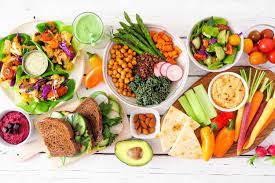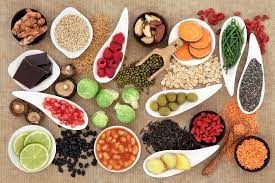Myths and Facts: In the world of nutrition, myths and misconceptions abound, often leading to confusion about what constitutes a healthy diet. From demonizing certain food groups to promoting quick-fix solutions, these myths can hinder our journey toward better health.
Terms of Nutrition
Balanced Diet is Key: A balanced diet that includes a variety of fruits, vegetables, whole grains, lean proteins, and healthy fats is essential for overall health and well-being. Each food group provides unique nutrients necessary for optimal functioning of the body.
Portion Control Matters: Paying attention to portion sizes is crucial for weight management and preventing overeating. Even healthy foods can contribute to weight gain if consumed in large quantities.
Hydration is Important: Staying hydrated is essential for maintaining proper bodily functions, including regulating body temperature, aiding digestion, and transporting nutrients. Water is the best choice for hydration, but other beverages like herbal tea and milk can also contribute to fluid intake.
Nutrient Timing: While overall calorie intake is important, the timing of meals can also impact energy levels and performance. Eating regular, balanced meals and snacks throughout the day helps maintain steady blood sugar levels and supports optimal energy levels.
Quality Over Quantity: Focus on the quality of your food choices rather than strictly counting calories. Nutrient-dense foods provide essential vitamins, minerals, and antioxidants that support overall health and reduce the risk of chronic diseases.
Click here to watch some tips about Myths and Facts of Nutrition: https://www.sanfordhealth.org/videos/nutrition-myths-and-facts
Myths and Facts about Nutrition


Myth: Eating late at night causes weight gain.
Facts: It’s not about the time you eat but rather the total calories consumed throughout the day. What matters most is the overall balance of calories in versus calories out.
Myth: Carbs are bad for you.
Facts : Carbohydrates are an essential source of energy for the body, especially whole grains, fruits, and vegetables. It’s the type and amount of carbs that matter. Opt for complex carbs over refined ones.
Myth: All fats are unhealthy.
Facts: Healthy fats like those found in avocados, nuts, seeds, and fatty fish are crucial for brain health and overall well-being. It’s trans fats and excessive saturated fats that should be limited.
Myth: Detox diets cleanse your body of toxins.
Facts: The body has its own detoxification system primarily involving the liver, kidneys, and lymphatic system. Detox diets are often unnecessary and can be harmful if they restrict essential nutrients.
Myth: Skipping meals is an effective way to lose weight.
Facts: Skipping meals can lead to overeating later in the day and can slow down metabolism. It’s better to focus on balanced meals and snacks throughout the day.
Myth: All protein sources are equal.
Facts: While protein is important for muscle repair and growth, not all sources are equally nutritious. Aim for a variety of protein sources including lean meats, fish, poultry, beans, lentils, and tofu.
Myth: Sugar-free foods are always healthier.
Facts: Sugar-free doesn’t mean calorie-free or healthier. Many sugar-free products contain artificial sweeteners or other additives that may have negative health effects when consumed in excess.
In Conclusion
It’s essential to critically evaluate nutrition information and consult with a registered dietitian or healthcare professional for personalized advice.
Nutrition myths can be pervasive, but by understanding the science behind them, we can make more informed choices about our diet and lifestyle. Remember to critically evaluate nutrition information and consult with a registered dietitian or healthcare professional for personalized advice. By separating fact from fiction, we can pave the way for a healthier, more balanced approach to eating.\
Separating facts from myths is essential for making informed decisions about nutrition and promoting a healthy lifestyle. It’s always a good idea to consult with a registered dietitian or healthcare professional for personalized nutrition advice.
Read More: https://placesandlifestyle.com/exploring-the-art-of-cuisine/




